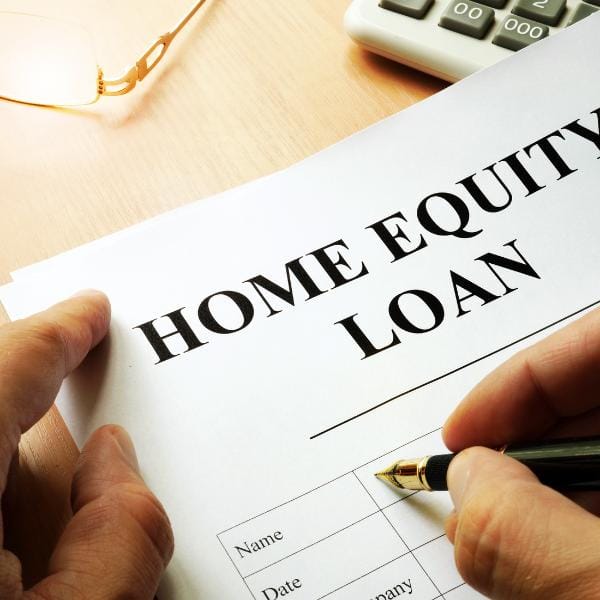Refinancing a home equity loan can be a strategic way to take advantage of lower interest rates or improve your financial situation. But before diving in, it’s essential to understand the ins and outs of home equity loan refinancing and how it might impact your current home equity loan and overall finances.
What Is a Home Equity Loan?
A home equity loan allows you to borrow against the equity in your home, often at a fixed interest rate. This type of loan gives you a lump sum upfront, with a repayment plan that typically spans 5 to 15 years. Many homeowners use home equity loans to fund home improvements, consolidate debts, or handle large expenses.
Can You Refinance a Home Equity Loan?
Yes, you can pursue a home equity loan refinance. Homeowners often choose this option when they want to lower their interest rate or adjust their monthly payments. Refinancing can replace your existing home equity loan with a new loan or combine it with your primary mortgage, making it easier to manage your monthly payments.
Benefits of Refinancing a Home Equity Loan
Refinancing a home equity loan can offer several potential benefits:
- Lower interest rates: If interest rates have decreased since you took out your original home equity loan, refinancing can save you money by reducing your monthly payments. Monitoring home equity loan rates can help you identify the best time to refinance.
- More affordable monthly payments: Refinancing your home equity loan could lead to lower monthly payments, especially if you extend the loan term.
- Additional cash: A cash-out refinance allows you to take out a new loan for more than your current mortgage or home equity loan balance, giving you extra cash for other needs.
How to Refinance a Home Equity Loan
The refinancing process for a home equity loan is similar to refinancing a primary mortgage. You’ll need to provide financial documentation, including pay stubs, tax returns, and details about your existing loan. Refinancing can also involve combining your existing mortgage with a home equity loan, which may offer more favorable terms if you have significant equity in your home. Here’s what to consider:
- Interest rates: Shop around for the best interest rates. Even a slight reduction in your interest rate can result in significant savings over the loan term.
- Closing costs: Refinancing typically involves closing costs, which may include appraisal fees, title search fees, and legal fees. Be sure to factor these into your decision.
- Loan terms: Adjusting the repayment term or opting for a fixed rate loan can help you manage your monthly payments more effectively.
- Home equity loan refinancing: Depending on the lender, you may be able to refinance your home equity loan with more favorable payment terms or take advantage of a fixed interest rate.
Types of Refinancing Options
When it comes to refinancing a home equity loan, there are several options to consider. Here are some of the most common types of refinancing options:
- Cash-Out Refinance: This type of refinance allows you to tap into the equity in your home and receive a lump sum of cash. You can use this cash to pay off high-interest debt, finance home improvements, or cover unexpected expenses. By leveraging your home equity, a cash-out refinance can provide the financial flexibility you need.
- Rate-and-Term Refinance: This option lets you change the interest rate and/or the loan term of your existing home equity loan. Adjusting the rate can help you lower your monthly payments, while changing the loan term can reduce the total interest paid over the life of the loan. It’s a strategic way to make your loan more manageable and cost-effective.
- Home Equity Line of Credit (HELOC) Refinance: Converting your existing home equity loan into a HELOC can offer more flexibility. A HELOC is a revolving line of credit that allows you to borrow and repay funds as needed, making it ideal for ongoing expenses or projects. However, keep in mind that HELOCs often come with variable interest rates, which can affect your monthly payments.
- Fixed-Rate Refinance: If you currently have an adjustable-rate home equity loan, switching to a fixed-rate loan can provide stability and predictability in your monthly payments. A fixed-rate refinance locks in a consistent interest rate for the duration of the loan term, protecting you from market fluctuations.
How Much Does It Cost to Refinance a Home Equity Loan?
The cost of refinancing a home equity loan varies based on factors like closing costs, the size of your loan amount, and whether you’re opting for a cash-out refinance. Typically, closing costs range from 2% to 5% of the loan amount. Make sure you consider the total costs versus the potential potential savings from a lower interest rate.
Can You Lower the Interest Rate on a Home Equity Loan?
Yes, if current interest rates are lower than when you initially took out your home equity loan, refinancing could allow you to lock in a lower interest rate. A home equity loan refinance can help secure a lower interest rate by adjusting the loan terms based on current market conditions. This can help reduce your monthly payments and save you money over time.
Is Refinancing a Home Equity Loan a Good Idea?
Refinancing can be a good idea if it offers financial sense for your situation. It may be the right move if you’re looking to lower your monthly payment, secure a fixed rate, or access additional funds through a cash-out refinance. However, if closing costs are high, or you don’t plan to stay in your home long-term, the savings might not outweigh the upfront expenses.
What Happens to My Equity When I Refinance?
When you refinance, your home’s equity may change depending on the new loan’s terms. If you opt for a cash-out refinance, you are essentially borrowing more than your current loan balance, reducing your equity. On the other hand, refinancing to a shorter repayment term can help you build equity faster.
Fixed vs. Adjustable Rate Loans
When refinancing, you may have the option to choose between a fixed rate or an adjustable rate. A fixed rate loan provides predictable payments throughout the loan term, while an adjustable rate may start with lower payments but can fluctuate based on market conditions. Weigh the pros and cons of each before deciding.
Home Equity Loan vs. Home Equity Line of Credit
Another option to consider is whether to refinance a home equity loan into a home equity line of credit (HELOC). A HELOC works like a revolving line of credit, allowing you to borrow and repay as needed during the draw period. Refinancing your home equity loan into a HELOC can offer more flexibility, but keep in mind that HELOCs often come with variable rates, which can increase your monthly payments over time.
Alternatives to Refinancing
While refinancing a home equity loan can be a great option, it’s not always the best choice. Here are some alternatives to consider:
- Home Equity Line of Credit (HELOC): A HELOC is a revolving line of credit that allows you to borrow and repay funds as needed. This can be a good option if you need to access cash periodically for various expenses. However, be aware that HELOCs often come with variable interest rates, which can lead to fluctuating monthly payments.
- Personal Loan: A personal loan is an unsecured loan that can be used for a variety of purposes, including debt consolidation or home improvements. Personal loans typically have higher interest rates than home equity loans but do not require collateral, making them a viable option if you prefer not to use your home as security.
- Credit Card: For smaller purchases or emergencies, a credit card can be a convenient option. However, credit card interest rates can be significantly higher than those of home equity loans, and it’s easy to accumulate debt if not managed carefully.
- Home Improvement Loan: Specifically designed for financing home improvements, these loans often have lower interest rates and more favorable terms than other types of loans. If your primary goal is to fund renovations or upgrades, a home improvement loan might be a more suitable alternative.
What to Expect During the Refinance Process
The refinance process can be complex and time-consuming. Here’s what you can expect:
- Application: You’ll need to submit an application to the lender, which will include personal and financial information. Be prepared to provide documentation such as pay stubs, tax returns, and details about your existing home equity loan.
- Credit Check: The lender will perform a credit check to determine your creditworthiness. A higher credit score can help you secure better interest rates and terms.
- Appraisal: The lender may require an appraisal of your home to determine its current value. This step is crucial as it affects the amount you can borrow and the terms of your new loan.
- Processing: The lender will review your application and order any necessary documentation. This stage involves verifying your financial information and ensuring you meet the lender’s criteria.
- Closing: Once your application is approved, you’ll sign the final documents and receive the funds. Be sure to review all terms and conditions carefully before closing to avoid any surprises.
Common Mistakes to Avoid
When refinancing a home equity loan, there are several common mistakes to avoid:
- Not Shopping Around: Failing to shop around for the best interest rate and terms can cost you thousands of dollars over the life of the loan. Compare offers from multiple lenders to ensure you get the most favorable deal.
- Not Considering Closing Costs: Closing costs can be high, and failing to consider them can increase the overall cost of the loan. Make sure to factor in these expenses when calculating the potential savings from refinancing.
- Not Reading the Fine Print: Failing to read the fine print can result in unexpected fees or terms. Carefully review all loan documents and ask questions if anything is unclear.
- Not Considering Your Financial Situation: Failing to consider your financial situation can result in taking on too much debt or committing to a loan that’s not right for you. Assess your financial health and long-term goals before deciding to refinance.
By understanding the different refinancing options, considering alternatives, knowing what to expect during the process, and avoiding common mistakes, you can make an informed decision about refinancing your home equity loan.
Factors to Consider Before Refinancing
Before you decide to refinance, assess your financial circumstances, including your minimum credit score, home value, and any outstanding balances on your loans. Make sure you have enough equity to qualify and that the savings from refinancing outweigh the costs.
Refinancing a home equity loan can provide an opportunity to secure a lower interest rate, reduce monthly payments, or access more money for other expenses. However, it’s important to evaluate the total costs, including closing costs and the repayment period, to determine if refinancing is the right choice for you.


